- Home
- Karen Traviss
The Clone Wars
The Clone Wars Read online
Contents
About the Book
About the Author
Also by Karen Traviss
Title Page
Dedication
Acknowledgments
Prologue
Chapter One
Chapter Two
Chapter Three
Chapter Four
Chapter Five
Chapter Six
Chapter Seven
Chapter Eight
Chapter Nine
Chapter Ten
Chapter Eleven
Chapter Twelve
Chapter Thirteen
Chapter Fourteen
Chapter Fifteen
Chapter Sixteen
Chapter Seventeen
Chapter Eighteen
Chapter Nineteen
Chapter Twenty
Epilogue
Copyright
ABOUT THE BOOK
Across the galaxy, the Clone Wars are raging. The Separatists, led by Count Dooku, the one-time jedi and now secret Sith Lord, continue to press forward, and more and more worlds are either falling, or seceding and joining the cause. Under the leadership of Supreme Chancellor Palpatine, the Republic heroically battles on, championed by its huge army of cloned soldiers and their Jedi generals.
Anakin Skywalker, believed by some to be the prophesied ‘Chosen One’ destined to bring balance to the Force, is now a Jedi Knight under the tutelage of his Jedi Master, Obi-Wan Kenobi. Death is a constant possibility – and his chances of survival aren’t improved by the unexpected arrival of an apprentice: Ahsoka, a brash, inexperienced fourteen-year-old Padawan. But there’s no time for Anakin to question his latest orders. He and Obi-Wan have been assigned a new mission, and failure is not an option.
Jabba the Hutt’s precious infant son has been kidnapped, and when the frantic parent applies to the Jedi for help, it falls to Anakin, Obi-Wan, Ahsoka, and their clone troops to track down the evidence and retrieve the missing Huttlet. And more is at stake: for a grateful Jabba just might allow the Republic access to the Hutt-controlled space lanes that the Grand Army desperately needs in order to beat the Separatists into submission.
But the Republic is not the only power that craves access to those space lanes. Count Dooku, determined to win the prize for the separatists, has set a trap for the Jedi. When they find the Huttlet, they will also find Dooku’s master assassin, Asajj Ventress, and countless legions of battle droids waiting to spring a trap.
ABOUT THE AUTHOR
Karen Traviss is the #1 New York Times bestselling author of four Star Wars: Republic Commando novels: Order 66, Hard Contact, Triple Zero, and True Colors; three Star Wars: Legacy of the Force novels: Bloodlines, Revelation, and Sacrifice; as well as City of Pearl, Crossing the Line, The World Before, Matriarch, Ally, and Judge. A former defense correspondent and TV and newspaper journalist, Traviss has also worked as a police press officer, an advertising copywriter, and a journalism lecturer. Her short stories have appeared in Asimov’s, Realms of Fantasy, On Spec, and Star Wars Insider. She lives in Devizes, England.
BY KAREN TRAVISS
City of Pearl
Crossing the Line
The World Before
Matriarch
Ally
Judge
STAR WARS: Republic Commando: Hard Contact
STAR WARS: Republic Commando: Triple Zero
STAR WARS: Republic Commando: True Colors
STAR WARS: Order 66
STAR WARS: Legacy of the Force: Bloodlines
STAR WARS: Legacy of the Force: Sacrifice
STAR WARS: Legacy of the Force: Revelation
STAR WARS: The Clone Wars
STAR WARS: The Clone Wars: No Prisoners
Star Wars: The Clone Wars
Karen Traviss
Based on the Movie
and TV Series by George Lucas
For the A Team at PCC,
now scattered to the four winds
ACKNOWLEDGMENTS
My grateful thanks go to editors Shelly Shapiro (Del Rey) and Sue Rostoni (Lucasfilm); my agent Russ Galen; Jim Gilmer, for unstinting logistics support; Karen Miller, for being a good mate; and the 501st Legion, for revealing what really happened on Teth.
JABBA THE HUTT’S PALACE, TATOOINE
HUMANS MADE THE RULES IN THE GALAXY, SO JABBA THE HUTT felt morally obliged to ignore them all.
He would raise his son, Rotta, to do the same.
“I could tell you,” he said, taking in the glittering throne room with a short sweep of his arm, “that one day all this will be yours. No. I want you to have more. Much more.” He picked up a priceless string of faceted emerald beads, alive with light and a delicate tracery of internal veining, dangling them in front of his child’s eyes. The assembled court—Jabba liked to admire his collection of talented, costly, and obedient beings—watched in silence while a solo musician plucked a soothing tune on gelen strings. “There. Isn’t that lovely? Isn’t that valuable?”
Rotta gurgled, foaming little bubbles of pearly drool, and grasped the necklace for close inspection as if assessing the carat weight. Then his face split into a grin. He shook the emeralds enthusiastically like a rattle.
“The more you own, the stronger you are.” Jabba waited until Rotta tired of his impromptu toy and let it go. The Nikto guard stepped in to take the jewels from Jabba’s hand. “Our bodies are slow, pedunkee, so our minds must be fast. You’ll need to learn all these lessons before you inherit my empire.”
Rotta stared into his face, bemused. He didn’t understand his legacy yet. It didn’t matter; Jabba would repeat the lesson anyway, each day, until Rotta was old enough to understand that the only way to hold your own in a galaxy dominated by those fast-moving, pushy, cocky bipeds was to use your brains, to play them at their own game, grab wealth before they did—before anyone did—and hire faster, deadlier beings to help you hang on to it. Hutts weren’t built for mobility. They were built for Varl, their long-abandoned homeworld, where their size and shape hadn’t been a handicap—until they began competing with humanoids.
But we learned to win. We filled a niche, as scientists say—the environment of crime. And now the bipeds come begging to us.
What’s a crime, anyway? Who is the Republic to dare tell me what’s right and wrong?
“It’s nearly time for Rotta’s daily excursion, Lord,” said the Nikto. “Shall I summon the sail barge?”
Jabba blinked slowly and glanced at the antique Chammian ivory wall chrono he’d accepted to settle a gambling debt. Or had it come from that smuggler who couldn’t deliver his contract on time, and bought just a thorough beating instead of a blaster bolt to the head? It didn’t matter. It was still time for Rotta’s walk, as his nurse called it, even though Hutts slithered.
Jabba leaned over slowly and tickled Rotta’s chins before picking him up. The infant was already heavy, a sign of robust health. “I have business to attend to, meekie lorda. Go with Nurse, and be good. I’ll ride with you tomorrow.”
Jabba often saw revulsion in humanoids’ eyes. The skinny, untidy, short-lived things judged everything by their own narrow standards. They thought Hutts were repulsive; they said so. But Jabba cradled his son—his own flesh and blood, and only his, because Hutts needed no partner to produce a child—and was mesmerized by how perfect he was. This was the unbroken bloodline from his own father, Zorba, stretching back millennia across generations of Hutts. This was the heir to his carefully built empire; this was the Hutt who would eclipse all that Jabba had achieved. Nothing mattered more.
The opinions of bipeds definitely didn’t.
The nurse today was a droid. Sometimes a Twi’lek or some other servant filled the role in a randomly changing roster; Jabba didn’t want Rotta to b
ecome more attached to the hired help than to his own father. He also mistrusted everyone—everyone—and the less predictable the routine, the lower the risk. A security team of well-armed Gamorreans waited to accompany the nurse. Tatooine might have been Jabba’s turf, but there was no sense in being complacent.
Jabba stroked Rotta’s head before surrendering him to his escort. “Guard him with your lives.”
They knew he meant it. The nursery guard trooped out, and Jabba steered his repulsorlift toward the ornate dais on which he’d recline while he received his next visitor—the viceroy of Bheriz. It was a grandiose title for a miner. But he’d be ready to trade processed teniline granules for access to Hutt-controlled hyperspace routes, and any substance that was critical to hyperdrive production would be at a premium in any war.
If the price wasn’t right, Jabba would seize the mineral anyway. There were ways to do that. But it was still cheaper and easier to negotiate.
He glanced around the chamber, satisfied that his entertainers, bodyguards, assorted staff, and slaves were arranged in a suitably impressive way around his throne, to focus the Bherizian’s mind on exactly how powerful a Hutt lord he was dealing with.
“Bring the viceroy in,” Jabba said. He settled into a go-ahead-and-impress-me pose. “I don’t have all day.”
Actually, he did.
He might live to be a thousand years old. No Hutt was in a hurry with a life span like that. Jabba had acquired lifetimes of experience, contacts, and knowledge; he had these transient species beaten from the start.
The viceroy walked in, head lowered reverently—sensible start, good start—and bowed.
“Lord Jabba . . .” he said, in passable Huttese. “It’s very good of you to see me.”
“Yes, it is. How much can you deliver?” Jabba took a long rattling draw from his bubble-pipe. “I don’t deal in small change.”
How can they possibly understand the long game?
The viceroy of Bheriz was a sharp operator, but Jabba had been doing business for generations. “Lord,” he said, eyes darting as if he was trying to avoid staring at the Twi’lek dancers draped around the throne. “I can offer you a quarter of our total annual teniline output in exchange for—”
“Half.” Jabba checked the ivory chrono again. “I would ask for all of it, but parenthood has made me sentimental.” His market analysts told him that teniline prices would collapse within five years now that hexophilenine-based drive components were being developed. There was no point being left with too much stock on your hands. “Do you have sons?”
“No . . . daughters,” said the viceroy quietly. “Three.”
The distinction between male and female was a temporary detail for a Hutt. But these frantic little bi-gendered species based their entire civilizations on it. Jabba wasn’t sure if the viceroy was apologetic for not having reproduced male offspring, or just stating a fact. “Splendid,” Jabba said. “Bloodline continuity is a fine thing. Now seal the deal, and you can have free passage on Hutt routes.”
It wasn’t free, of course. It was merely cheaper than it might have been if Bheriz had tried to dig its heels in.
“Agreed, Lord Jabba,” said the viceroy.
Jabba waved him away and puffed at the pipe again. Sometimes it was too easy. Sometimes . . . every day felt the same as the last, decade after decade after century. He cast around for some novelty to pass the time, not exactly excitement—he had seen far too much in his life to think there was any thrill left to be sought—but simply something absorbing. The musicians provided that for a while. Jabba lost himself in the chords.
“Lord Jabba! Lord Jabba!”
One of the Nikto guards came running into the chamber. He fell on his knees, quite literally, skidding the last half meter on the polished tiles. Niktos didn’t usually panic; he obviously had very bad news that he knew wouldn’t be well received.
“This had better be important, shag,” said Jabba.
The Nikto paused for a breath before he spoke. “It’s your son, my lord,” he said. “We were ambushed. Rotta has been kidnapped.”
It wasn’t the kind of excitement Jabba had been looking for. Every fiber in his body tensed with dread; then his fear reaction took over and he drew himself up to his full height, scattering dancers and musicians.
“Find him!” Jabba bellowed. “Find my son! If he’s harmed—you’ll all pay with your lives.”
Yes, he meant it.
ONE
We have to get access to those hyperspace routes that the Separatist droids haven’t seized yet. Without that, we’ll never be able to take the Outer Rim worlds. Unfortunately, that means we need the cooperation of the Hutts.
CHANCELLOR PALPATINE, on the logistics problems facing the Grand Army of the Republic
ZIRO THE HUTT’S PALACE, USCRU DISTRICT, CORUSCANT
“COULD YOU KILL a child?”
Count Dooku thought it was an odd question, coming as it did from Ziro. The Hutt had been perfectly happy to go along with the idea of kidnapping his nephew’s baby son. But if he’d thought through the reality of grabbing Jabba’s gangland power, then wiping out all rivals, even baby heirs, had to be high on his list of priorities.
Maybe it wasn’t. And that would be a fatal mistake.
“Could you?” Dooku responded casually. “Isn’t he almost your flesh and blood too?”
Ziro blinked, passing the nictitating membranes across his eyes with slow deliberation. It was the Hutt equivalent of raising a sarcastic eyebrow. The private chamber was deserted, with not even a serving droid to overhear them.
“You don’t understand us, even if you speak our language far better than most realize,” Ziro said at last. “He’s Jabba’s bloodline. Not mine. So I do whatever it takes, and my priority is my own offspring.”
Ziro might have been playing the hard case, or he might have been serious. If he was serious, then Dooku hoped for his sake that he was ready to kill Jabba, too, because his nephew would send every assassin in Hutt space after him if he found out his uncle was responsible.
“Try not to be too hasty,” Dooku said. Don’t blow this before I get what I need. The ploy was buying time. “Extract maximum leverage from this.”
“You don’t have to explain long-term strategy to a Hutt,” Ziro rasped.
Dooku tried to stop himself from falling into a chain of reasoning with Ziro. It would bring the delicate edifice of his own operation crashing down if he said anything that made Ziro wonder if this kidnapping was going to achieve anything for him. Dooku wasn’t convinced that taking Rotta would dislodge or even weaken Jabba’s grip on power, but Ziro thought it would reduce his nephew to mere clay in his hands—which was all Dooku needed.
Dooku was certain of one thing, though: harming the Huttlet would unleash a tidal wave of incredible vengeance, and Jabba was going to be around a long, long time to make sure he found everyone involved in the kidnapping and punished them in his uniquely inventive way.
Dooku was counting on it. He wanted the Hutt in the Separatist camp, and the way to do that was to frame the Jedi for Rotta’s disappearance.
But if Ziro’s cover is blown—then he has to be silenced. We can’t have Jabba realizing he’s been maneuvered by us . . .
It would be too bad if anything happened to Ziro. After Jabba was signed up, Ziro’s fate was inevitable; he would have to be silenced before he implicated Dooku.
Either Hutt would do, though, in a pinch. It didn’t matter if it was Jabba or Ziro who denied hyperspace passage to Republic forces. Dooku wasn’t selling ideology, and he was sure neither Hutt was buying.
“Of course not,” he said, smiling at a being he would kill without hesitation if he threatened his plans. He had no doubt that Ziro would do the same to him. “But you do have to consider what you’ll do with Rotta in the longer term.”
Ziro eased his bulk across the marble floor onto a platform strewn with shimmersilk cushions that he swept out of the way. Hutts needed smooth surfaces to mov
e properly; carpeting and upholstery didn’t go well with a lubricating layer of slime. But Ziro surrounded himself with the finest examples of furnishing anyway. It was as if he wanted to show the rest of the galaxy how powerful he was in terms that other species could understand. Dooku didn’t despise that. He felt the faintest pang of pity. It explained the Hutts’ need to flaunt Twi’lek dancers and other glamorous humanoids, so radically, physically different that no Hutt could possibly have found them attractive. They collected them because humanoids coveted them, and so it sent the message clearly: I possess everything you lust after, so I have power over you.
It all came from fear. Hutts felt threatened at a subliminal level. Once Dooku worked that out, it had been far easier to deal with them by pressing gently on their paranoia.
“Rotta should be on Teth soon,” Dooku said, taking a slow turn to look at the doors. He could hear raised voices in the chamber beyond. He sensed anxiety; no unusual thing in a Hutt’s palace with a capricious boss. Maybe the servants couldn’t find whatever overpriced delicacy he’d sent them to procure. “Plenty of time to consider your position at your leisure.”
“I’m expecting confirmation any moment. Tell me, why do you hate your Jedi family so much?”
“They’re not my family, and haven’t been for a very long time,” Dooku said. “Does it matter?”
“Motivation is everything in business.”
“Lord Ziro, I suspect you really have no need to ask. Would you put your future in their hands?”
“I wouldn’t trust the Republic to do anything for Hutts except try to stop us from making a living.”
Ziro saw Jedi and Republic as one entity. Dooku had reached a similar conclusion years before. “And anyone who doesn’t want to be part of their happy Republic family must be a tyrant or an anarchist. If a world wants to leave, it’s accused of being undemocratic, because the will of its inhabitants doesn’t suit Coruscant. Such a beautifully embroidered veil of irony.”

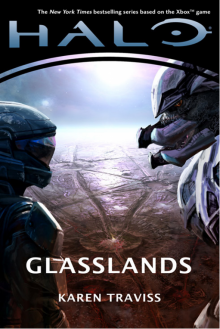 Halo: Glasslands
Halo: Glasslands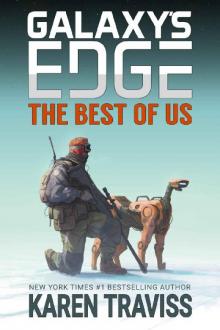 The Best of Us
The Best of Us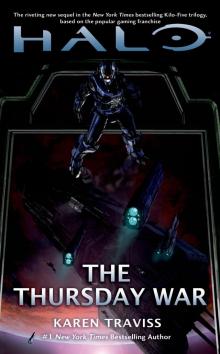 Halo: The Thursday War
Halo: The Thursday War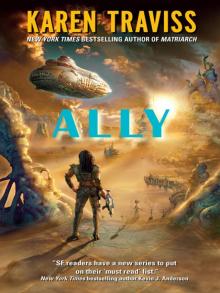 Ally
Ally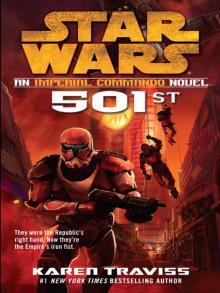 501st: An Imperial Commando Novel
501st: An Imperial Commando Novel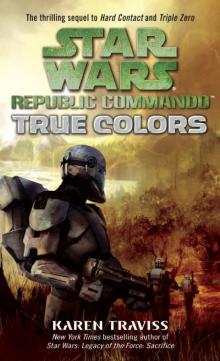 True Colors
True Colors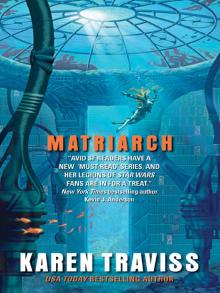 Matriarch
Matriarch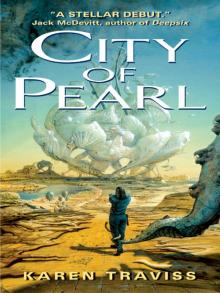 City of Pearl
City of Pearl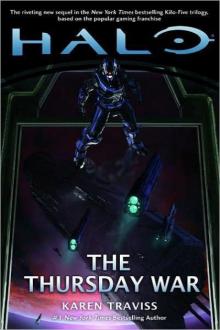 The Thursday War
The Thursday War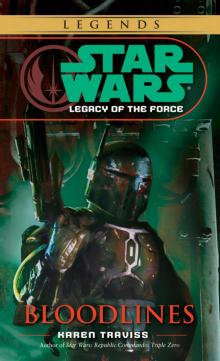 Bloodlines
Bloodlines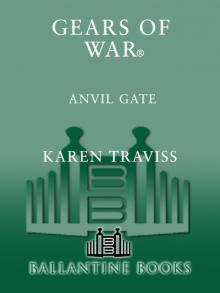 Gears of War: Anvil Gate
Gears of War: Anvil Gate Crossing the Line
Crossing the Line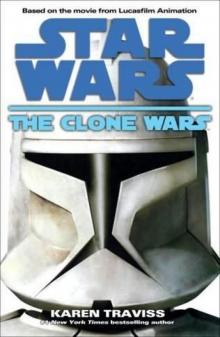 Star Wars - The Clone Wars 01
Star Wars - The Clone Wars 01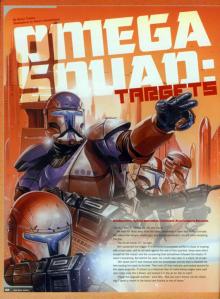 Omega Squad: Targets
Omega Squad: Targets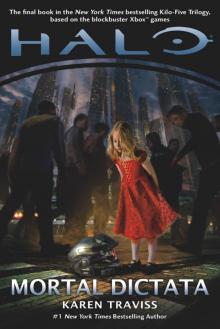 Halo®: Mortal Dictata
Halo®: Mortal Dictata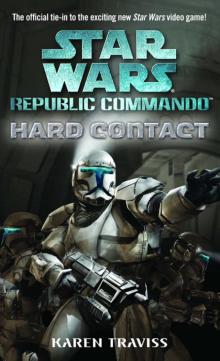 Hard Contact
Hard Contact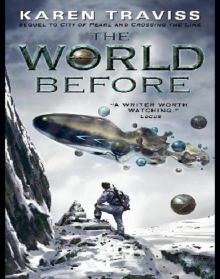 The World Before
The World Before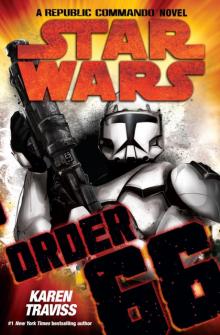 Order 66
Order 66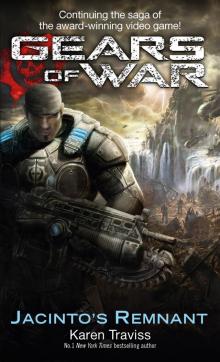 Gears of War: Jacinto's Remnant
Gears of War: Jacinto's Remnant Sacrifice
Sacrifice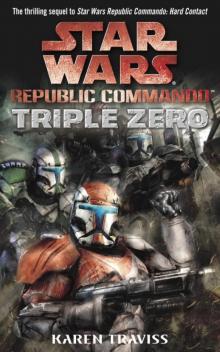 Triple Zero
Triple Zero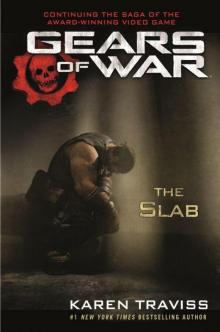 Gears of War: The Slab (Gears of War 5)
Gears of War: The Slab (Gears of War 5)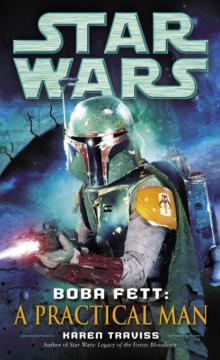 NEW JEDI ORDER: BOBA FETT: A PRACTICAL MAN
NEW JEDI ORDER: BOBA FETT: A PRACTICAL MAN Going Grey
Going Grey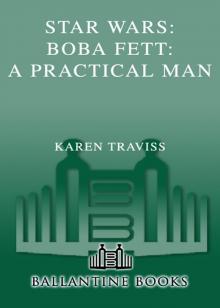 Star Wars: Boba Fett: A Practical Man
Star Wars: Boba Fett: A Practical Man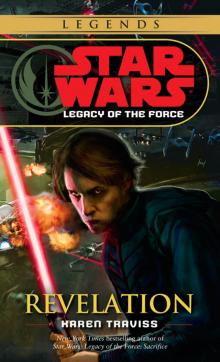 Revelation
Revelation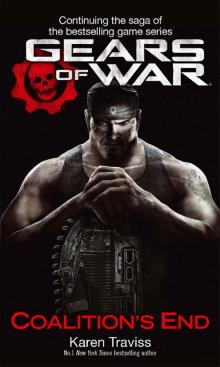 Coalition's End
Coalition's End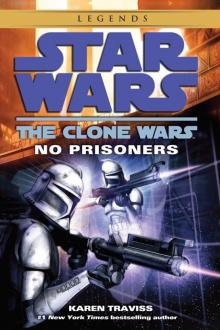 No Prisoners
No Prisoners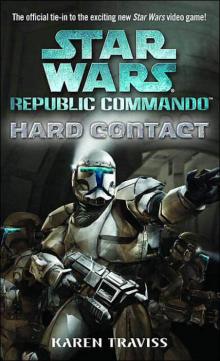 Star Wars Republic Commando: Hard Contact
Star Wars Republic Commando: Hard Contact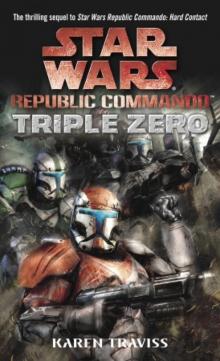 Star Wars: Republic Commando: Triple Zero rc-3
Star Wars: Republic Commando: Triple Zero rc-3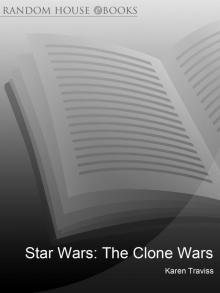 The Clone Wars
The Clone Wars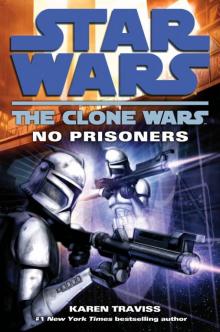 The Clone Wars: No Prisoners
The Clone Wars: No Prisoners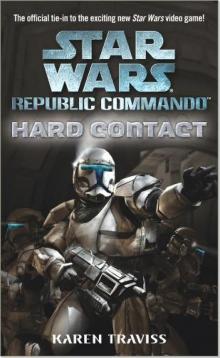 Star Wars: Republic Commando: Hard Contact rc-1
Star Wars: Republic Commando: Hard Contact rc-1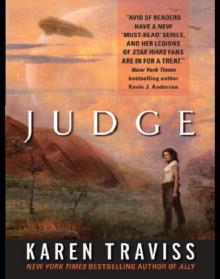 Judge
Judge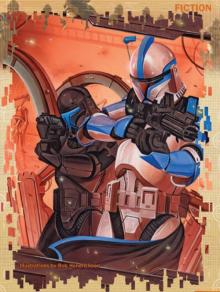 Omega Squad: Targets rc-4
Omega Squad: Targets rc-4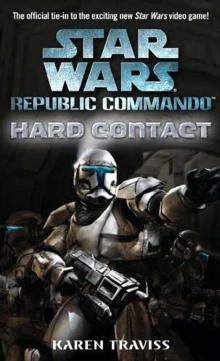 Star Wars - Republic Commando - Hard Contact
Star Wars - Republic Commando - Hard Contact